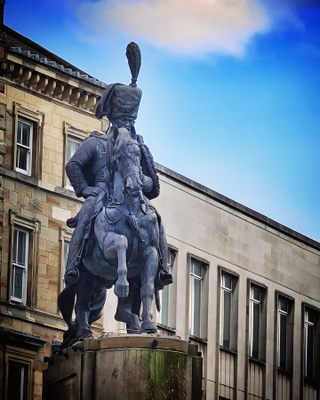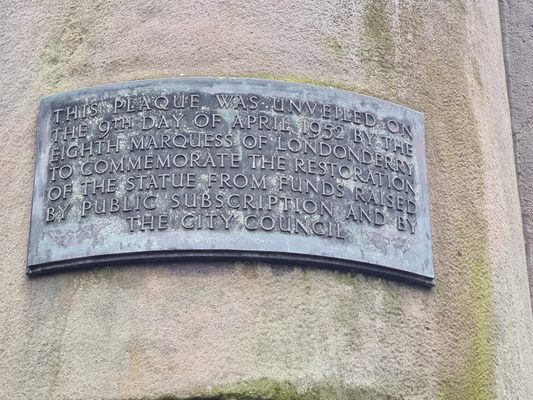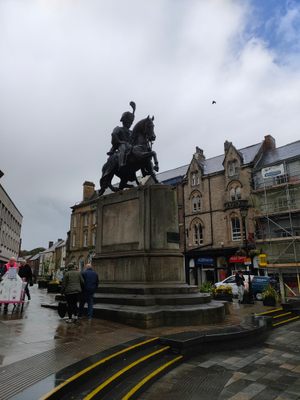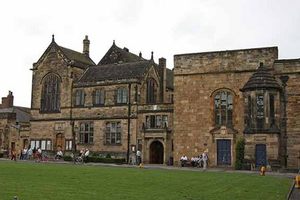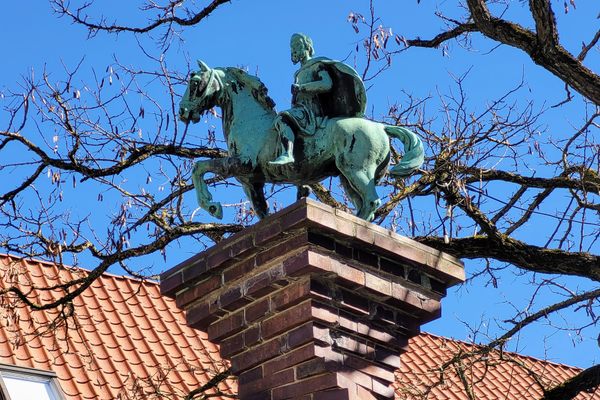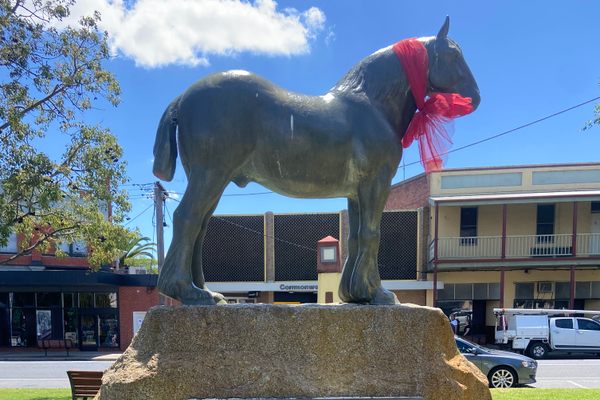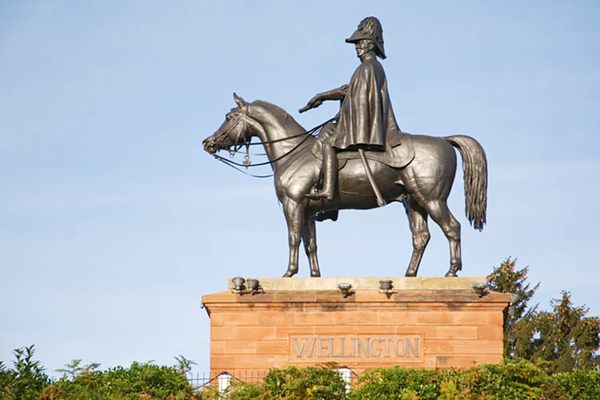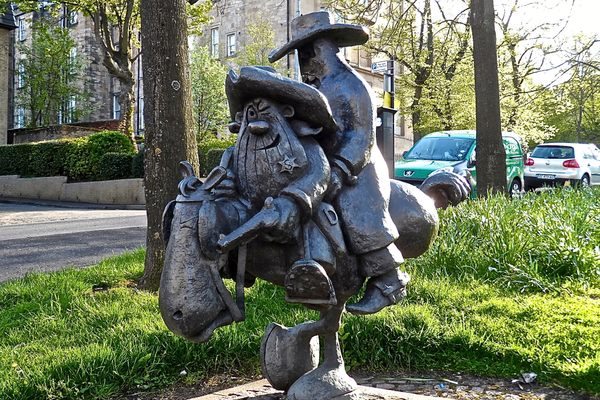About
"The horse" is a frequent meeting place for people heading to Durham Market Place. But many people, even lifelong locals, don't know who the double-life-sized equestrian statue represents. That ends here: The chap on the horse, clad in military regalia, is Charles William Van Stewart, the 3rd Marquess of Londonderry.
The Marquess was a cavalryman in both the French Revolutionary Wars and the Napoleonic wars. He led a brigade of hussars (light cavalry) and served as the right-hand man for the Duke of Wellington. When the Marquess died in 1854, his widow raised money to erect a grand statue in his honor. Raphael Monti, an English-based, Italian artist from Milan, would do the sculpting. Monti created the statue using plaster electroplated with copper. Over time the copper corrodes, which gives it a green tint.
Unfortunately, right before the statue was to be installed, Monti went bankrupt. His mounted Marquess was confiscated and the Marquess' widow had to pay the artist's debts to get it back. Then there was another snag: five local tradesmen filed a lawsuit, claiming that if the large statue and its substantial plinth were installed in the marketplace, it would impede pedestrian traffic and dissuade people from visiting their businesses. Ultimately, the tradesmen did not succeed and the monumental Marquess took up his position in the marketplace on December 2, 1861.
After the unveiling, a strange legend became associated with the statue. According to the myth, the sculptor Monti—apparently a bit of an egomaniac—said he would give a reward to anyone who could find even the tiniest error in his flawless statue. No one could, until a blind man asked to be lifted up to inspect the statue with his hands. Suddenly, he declared an error: the horse had no tongue. The legend goes on to say that Monti was so devastated by this humiliation that he ended his own life. The truth is much less dramatic: The horse does have a tongue, and Monti lived until 1881, creating many more statues before his passing.
Related Tags
Know Before You Go
The statue was originally located in front of the market place church, but in 2010 it was moved closer to the market place's southern entrance. When this happened, locals pointed out that those approaching from the south are greeted by the horse's rear end. Nevertheless, the statue's position has not changed.
The statue is on several steps that can be avoided, and can be seen at any time. It's less than half a mile from the train station.
Community Contributors
Added By
Published
February 2, 2022

